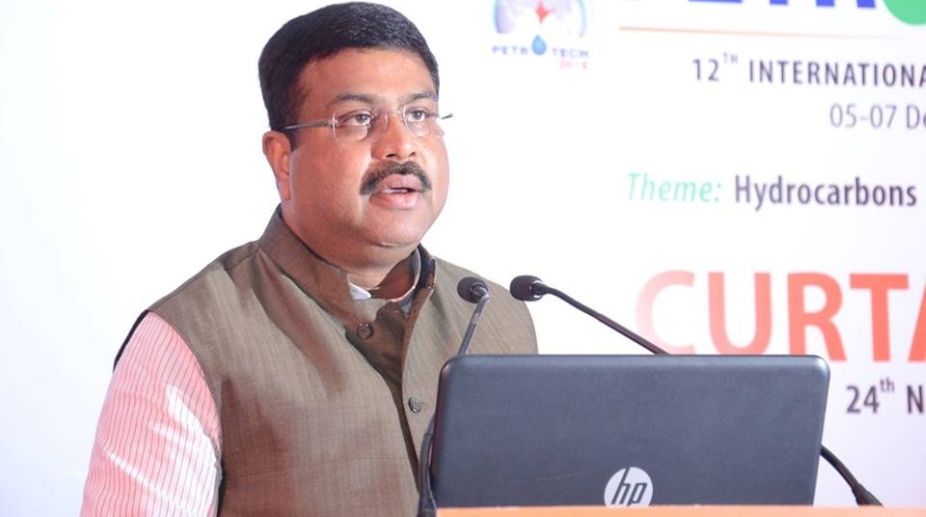NSUI stages protest against Pradhan’s remarks
Members of the Congress’ student wing under the leadership of its Delhi unit president Ashish Lamba holding aloft placards held the demonstration in front of the Shastri Bhawan.

Union Minister Dharmendra Pradhan (Photo: Facebook/File)
Petroleum Minister Dharmendra Pradhan said on Monday that he will personally speak to Uddhav Thackeray to allay the Shiv Sena leader’s fears about the threat to farmers’ lands due to the proposed Ratnagiri refinery.
Pradhan was speaking after the signing of a MoU here between Saudi national oil company Aramco and the Abu Dhabi National Oil Co (ADNOC) to jointly develop and build the integrated Ratnagiri Refinery and Petrochemicals Ltd (RRPCL) in collaboration with an Indian consortium consisting of state-run oil marketing companies (OMCs) Indian Oil, Hindustan Petroleum and Bharat Petroleum.
Advertisement
The $44 billion project at Nanar is being opposed by the Shiv Sena along with a section of local villagers.
Advertisement
“We are talking with all stakeholders on this issue. I will talk to Uddhav Thackeray and the genuine grievances of the local people will be sought to be resolved by the companies,” Pradhan said.
“On principle there is no objection to the refinery. The farmers’ grievances will be taken care of,” he added.
An MoU to set up the RRPCL was signed here on the sidelines the 16th International Energy Forum (IEF) in April between an Indian consortium and Aramco.
RRPCL will have Aramco and ADNOC as overseas strategic partners. The project will be set up as a 50:50 joint partnership between the consortium from India, Aramco and ADNOC.
“This will be a single largest overseas investment in the Indian refinery sector,” Pradhan said.
The mega refinery will be capable of processing 1.2 million barrels of crude oil per day by 2022 or 60 million tonnes per annum, he added.
According to a Petroleum Ministry statement, the refinery will produce a range of refined petroleum products, including petrol and diesel meeting BS-VI fuel efficiency norms.
It will also provide feedstock for the integrated petrochemicals complex, which will be capable of producing around 18 million tonnes per annum of petrochemical products.
Advertisement